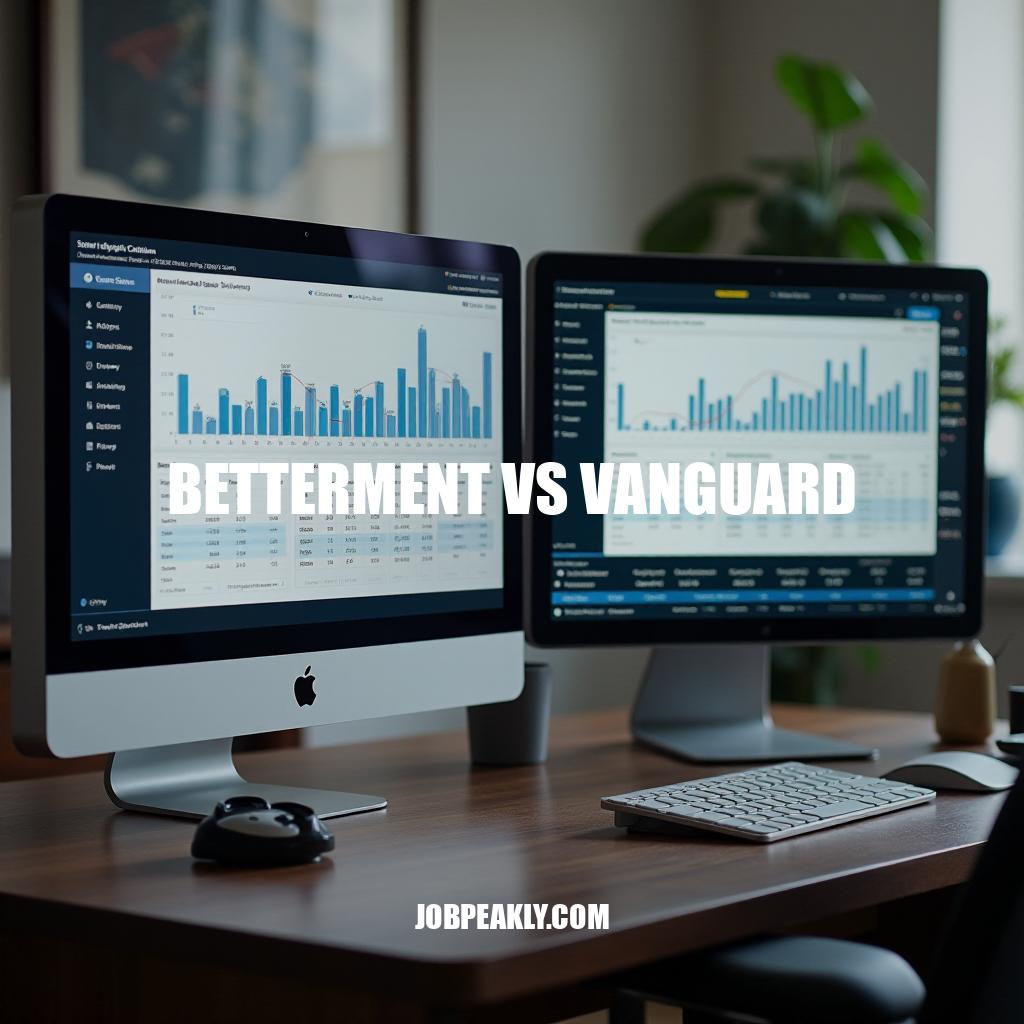
Betterment and Vanguard are two big names in investing. They both help people manage their money, but they do it in different ways. Betterment is known for its automated investment service that’s easy on the wallet.
Vanguard, on the other hand, focuses on index funds and offers a mix of human advice and tech tools. Both platforms play important roles in how people invest their money.
Comparative Analysis
Betterment Vs Vanguard presents a compelling comparison between two distinct investment platforms, each catering to different investor needs. Betterment operates as a robo-advisor, offering automated portfolio management tailored to individual goals and risk tolerance. Vanguard, on the other hand, is a renowned brokerage and investment management firm, providing a mix of active and passive investment strategies.
Unique Features
Betterment emphasizes simplicity and automation, making it ideal for beginners or those seeking a hands-off approach. It offers features like tax-loss harvesting, automatic portfolio rebalancing, and socially responsible investing (SRI) portfolios. Vanguard, however, provides a broader range of investment options, including stocks, bonds, ETFs, and mutual funds.
Its Personal Advisor Services combine human financial advisors with digital tools, catering to investors who prefer a more hands-on strategy.
Cost Structures
The cost structures in Betterment Vs Vanguard differ significantly. Betterment charges a flat 0.25% annual management fee for its Digital plan and 0.40% for its Premium plan, which includes access to human advisors. Vanguard’s fees vary based on the service: its Digital Advisor charges 0.15% of assets under management, while the Personal Advisor Services range from 0.05% to 0.30%.
Additionally, Vanguard’s expense ratios for ETFs average around 0.05%, making it a cost-effective choice for long-term investors.
User Experiences
Betterment’s user interface is intuitive and designed for ease of use, appealing to tech-savvy individuals and those new to investing. Its mobile app and website provide clear insights into portfolio performance and financial goals. Vanguard, while offering robust tools and resources, has faced criticism for its less modern interface.
However, its reputation for reliability and comprehensive investment options often outweighs these concerns for seasoned investors.
Betterment Vs Vanguard ultimately boils down to individual preferences. Betterment suits those seeking automation and simplicity, while Vanguard appeals to investors desiring a diverse range of options and the flexibility to engage with human advisors. Both platforms have their strengths, making them valuable choices depending on one’s financial goals and investment style.
The Comparison of Betterment Vs Vanguard
The comparison of Betterment Vs Vanguard reveals two distinct investment platforms catering to different investor needs.
Betterment excels as a robo-advisor, offering automated portfolio management and simplicity, making it ideal for beginners or those seeking a hands-off approach. Its features include tax-loss harvesting, automatic portfolio rebalancing, and socially responsible investing portfolios.
Vanguard
Vanguard, on the other hand, provides a broader range of investment options, including stocks, bonds, ETFs, and mutual funds, with its Personal Advisor Services combining human financial advisors with digital tools for investors who prefer a more hands-on strategy. Vanguard’s fees are generally lower, especially for long-term investors, with expense ratios averaging around 0.05% for ETFs.
Choosing Between Betterment Vs Vanguard
When choosing between Betterment Vs Vanguard, consider the following key takeaways:
- If you prioritize automation and simplicity, Betterment is a suitable choice.
- If you desire a diverse range of investment options and flexibility to engage with human advisors, Vanguard may be more appealing.
- Consider your financial goals and investment style: if you’re new to investing or prefer a hands-off approach, Betterment might be the better fit. If you’re a seasoned investor seeking comprehensive investment options, Vanguard could be the way to go.
Ultimately, both platforms have their strengths, making them valuable choices depending on individual preferences and financial objectives.


